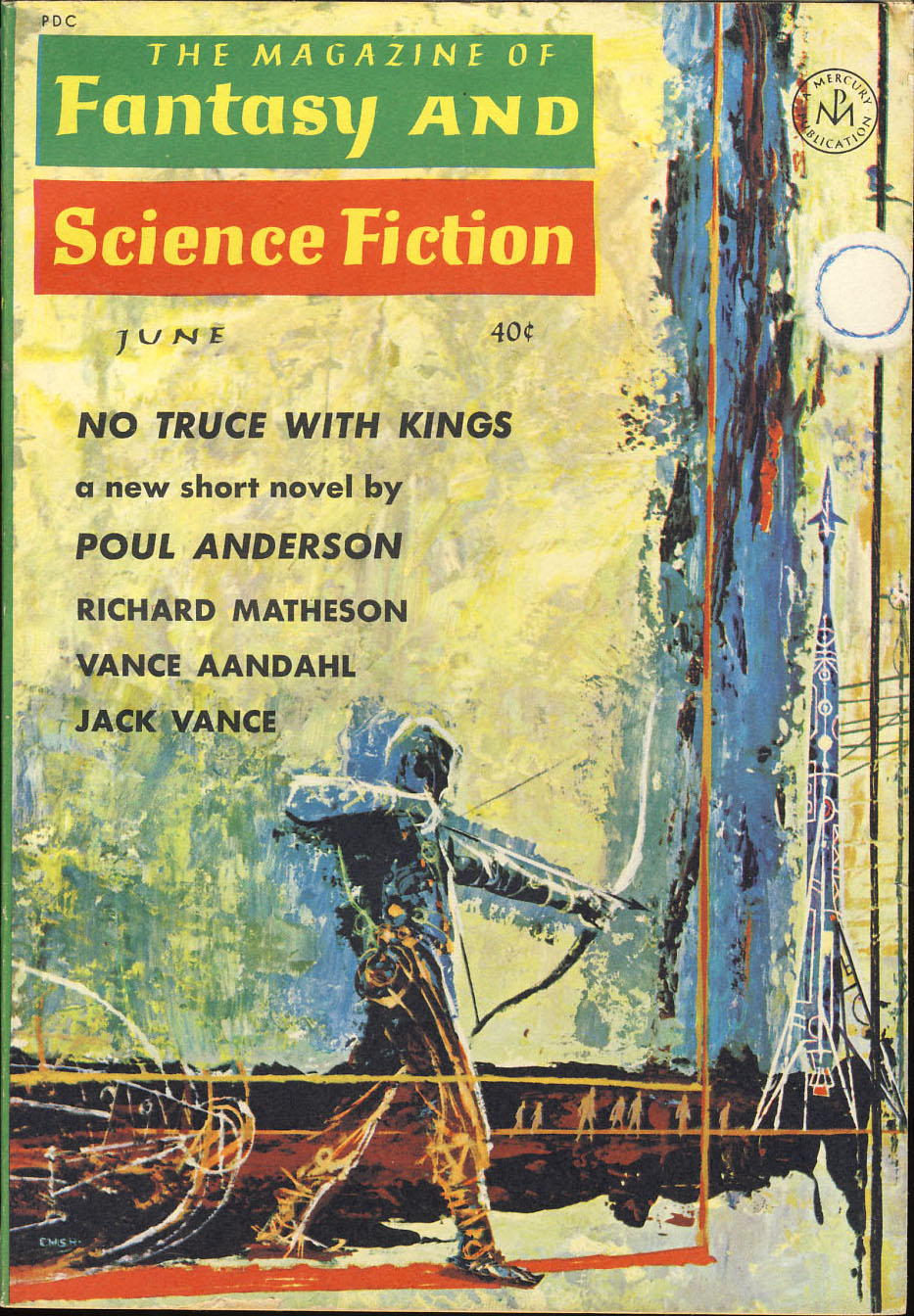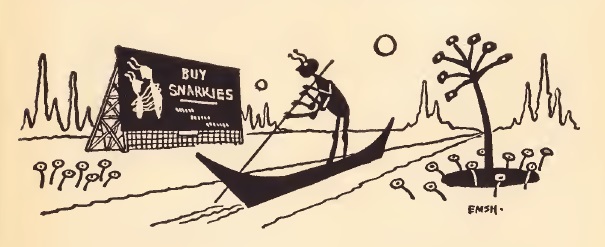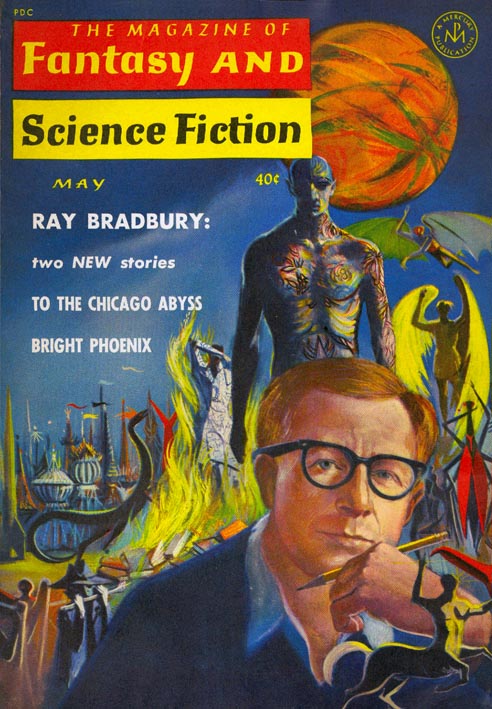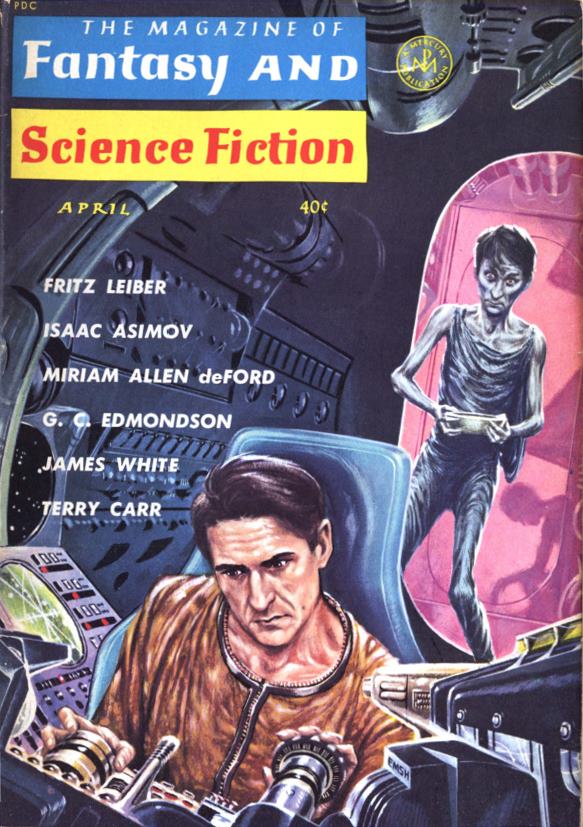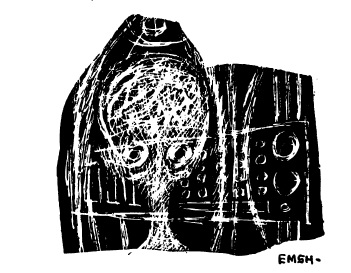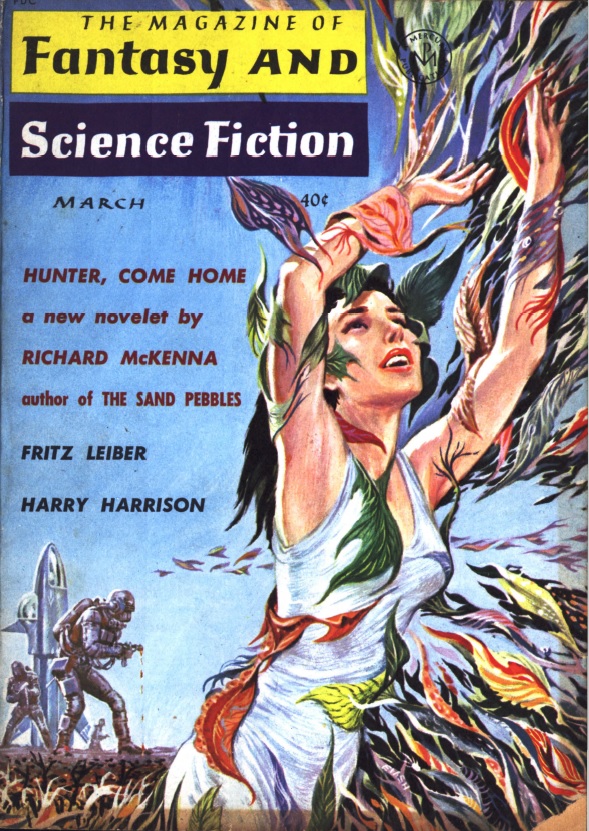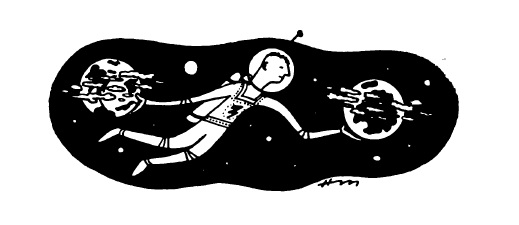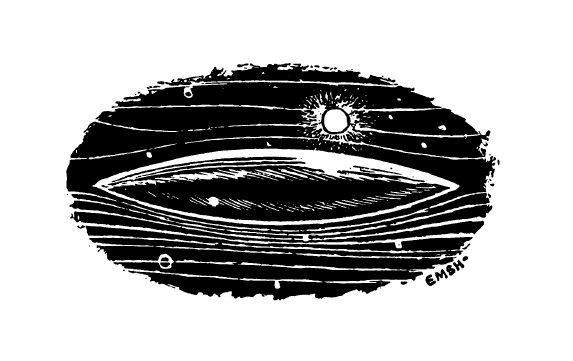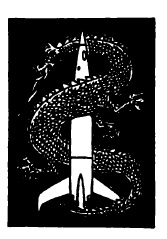
by Gideon Marcus
Good morning, everyone, and welcome to a special, extra-large Fifth Anniversary edition of the Galactic Journey.

Five years ago tomorrow, I created the Journey to detail the day-by-day adventures of a science fiction magazine fan who just happened to also be a space journalist. In the passage of five circuits around the sun, the scope of this project has expanded tremendously to cover books, movies, tv shows, comics, politics, music, fashion, and more. The Journey has grown from a solo project to a staff of twenty spanning the globe. Two years ago, we won the Rod Serling Award, and this year, we were nominated for the Hugo.
Imagine where we'll be in another half-decade!
Nevertheless, as we look back to our humble beginnings, it is appropriate that the topics I have slated for discussion today are ones we have covered sine 1958, namely the space race and The Magazine of Fantasy and Science Fiction.
Ticking back from Midnight

Earlier this month, President Kennedy signed the Senate-ratified Partial Nuclear Test Ban Treaty, outlawing American and Soviet above-ground nuclear tests. No longer shall we detonate atomic blasts in the sky just to see the pretty glow and tinge our TANG with strontium-90.
It's an exciting first step toward controlling the nuclear genie, but the question now becomes, 'How do we enforce the ban?' A way had to be developed to tell if the other side had tested a bomb without telling us.
Enter the two 'Vela-Hotel' satellites. Launched on October 18, 1963, they have detectors sensitive enough to pick up the flash of radiation associated with a nuclear blast. Moreover, these probes will do scientific duty while they enforce the peace, studying X-rays, gamma-rays, neutrons, and charged particles as they pass through interplanetary space, measuring the bow shock, the sheath, and the tail of Earth's magnetic field. A series of six launches is planned.
Mapping the Magnetosphere

Though the energetic electrons and protons that swirl around the Earth barely weigh 150 pounds total, they carry the tremendous electric and magnetic charges that encircle our globe, protecting us from the endless solar wind of radiation. One of the great scientific uses of satellites is the mapping of these magnetic fields to better understand the mechanism of their creation and their interaction with the sun's own fields.
Along with the two Vela-Hotels, a five-pound hitchhiker was launched specifically to measure the intensity of charged particles in the magnetosphere using an omni-directional radiation detector.
This new probe in some ways continues the mission of Explorer 14, which began to die in August of this year. It's still running, but it has lost the ability to modulate its transmissions, rendering scientific data as an incomprehensible babble. Nevertheless, the doughty satellite collected 6500 hours of data and mapped enough of Earth's magnetosphere to give it a definitive shape. We now know that, in addition to the compressed bow shock where our planet's field meets that of the sun, there is a long tail in Earth's shadow in the shape of a pointed arch. Explorer 14 also determined that Earth's field gradually shifts from the traditional north pole/south pole dumbell shape to a simple radial (round, equally distributed) field with distance from the planet. Finally, Explorer 14 confirmed the tentative discovery reported by Explorer 6 that the charged particles trapped in Earth's magnetic field make a current of electricity ringing the Earth clockwise around its equator.
Pretty neat stuff!
Experiments in Literary SF

On the ground, the stable of authors in Editor Avram Davidson's pay has embarked on their own series of experiments in the form of the November 1963 F&SF. Some were more successful than others, but none were failures (inasmuch as any experiment can be a failure…):
A Rose for Ecclesiastes, by Roger Zelazny
The once-proud civilization of Mars is a desiccated shell, a treasure trove of dusty tomes and ancient rites amidst tended by the last vestiges of the race. What hidden wisdom lies behind the sacred temple walls of the Red Planet? Polyglot and somewhat precious Mr. Gallinger is dispatched from Earth to find out. Along the way, he learns the secret the Martian people have been carefully guarding, at profound cost to his soul.
This is a hard piece to judge. On the one hand, it's very clearly an experiment at literary sf, the kind that Sturgeon and Dick have produced to tremendous effect many times in their careers. I greatly admire people who can write the stuff — I'm currently knee deep in my first attempt, so I understand the difficulty involved. Zelazny almost pulls it off, but he's just not yet seasoned enough an author for the feat. The story comes off as too affected to be entirely effective.
Moreover, there really is no excuse these days for Mars to be depicted as Earthlike nor its inhabitants entirely human. That's not science fiction. It's laziness.
Three stars.
Mama, by Philip Winsor
Did you ever read the story where it turns out babies retain the memories of their past life for a while after reincarnation? Apparently, Winsor has too, or Mama is a stunning case of convergent evolution. Maybe I'm just remembering this tale from a past life. Three stars.
Welcome Stranger, by Isaac Asimov
I just nonfiction articles on two axes: 1) How entertaining is it to read, and 2) Did I learn anything? This particular piece is on Xenon, in particular; noble gasses, more broadly; and molecular bonds, in general. My ignorance of chemistry is profound, so the fact that Dr. A was able to teach me about all of these topics and leave me with a desire to learn more is remarkable. Four stars.
Wings of Song, by Lloyd Biggle, Jr.
When the last musical instrument has been lost, and even the wood to repair it is a forgotten memory, will song die as well? This moving piece by sf-writer/musicologist Biggle is hardly plausible, but as a cautionary tale, it's thoroughly haunting. Four stars.

Winged Victory, by S. Dorman
The sole woman-penned piece in the book (the "S." stands for "Sonya"), Victory involves a confirmed bachelor and the lady who hen-pecks him into submission. It's a weird tale whose message is literally that the dating game is for the birds. Just long enough to make its point; three stars.
Eight O'Clock in the Morning, by Ray Nelson
[So impressed was I by this tale that I read it aloud to my family one night. The Young Traveler insisted on writing her own review — who am I to argue?]

by Lorelei Marcus
A man named Nada awakes to find the world's been overtaken by aliens that control every aspect of human life. These "Fascinators" lead us, own us, are among us, and so Nada finds it his duty to try and save us. A thrilling story to read, it has you on the edge of your seat questioning his every move. Is this really the savior of humanity, or some crazed serial killer? The story is woven with expert writing that gives the main character a lack of doubt (only we have doubts), and a quick pace. A thoroughly enjoyable and insightful short story, it won't take more than ten minutes of your time to read, and the ending might surprise you. Five stars.
The Eyes of Phorkos, by L. E. Jones

by Gideon Marcus
Lastly, we have the tragic story of James Carew, an English dilettante who plunges into archaeology to compensate for the unhappiness stemming from his fantastically ugliness. On a small island in the Aegean, he discovers that at least one of the legends of Perseus was based wholly in fact. This find makes Carew heir to the powers of one of Greek Mythology's most terrifying monsters, and we all know the effect of power (particularly the absolute kind) on a character.
Written in a quaint style, it begins better than it ends, but it's never unrewarding reading. Three stars.

As you can see, not only was the content of this issue experimental in nature, but so was the format. Where F&SF normally has the most stories per issue of the SF digests, tending toward vignettes over longer pieces, the November issue had two full novellas and a handful of shorter stories. This makeup is closer to that of, say, Analog.
The cover is also something of a departure, marking pulp era illustrator Hannes Bok's return to SF after a long hiatus.
All in all, I'd judge this issue a successful effort, certainly more challenging and rewarding than much of the stuff that comes out these days. On the other hand, there's virtually no science in these pages, which is somewhat worrisome for a magazine whose title would suggest otherwise.
I'd be interested to know what you think.

![[October 20, 1963] Science Experiments (November 1963 <i>F&SF</i> and a space update)](https://galacticjourney.org/wp-content/uploads/2018/10/631020cover-672x372.jpg)

![[September 17, 1963] Places of refuge (October 1963 <i>Fantasy and Science Fiction</i>)](https://galacticjourney.org/wp-content/uploads/2018/09/630917cover-672x372.jpg)






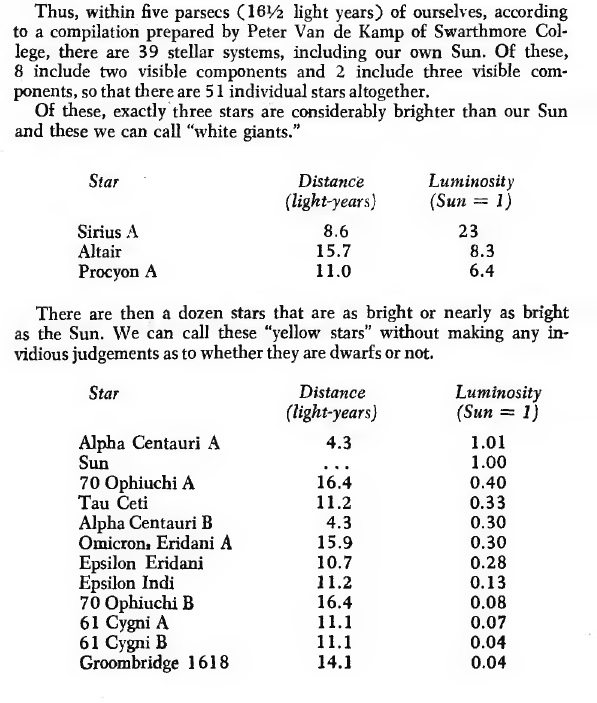

![[August 21, 1963] Forgettable (September 1963 <i>Fantasy and Science Fiction</i>)](https://galacticjourney.org/wp-content/uploads/2018/08/630818cover-672x372.jpg)





